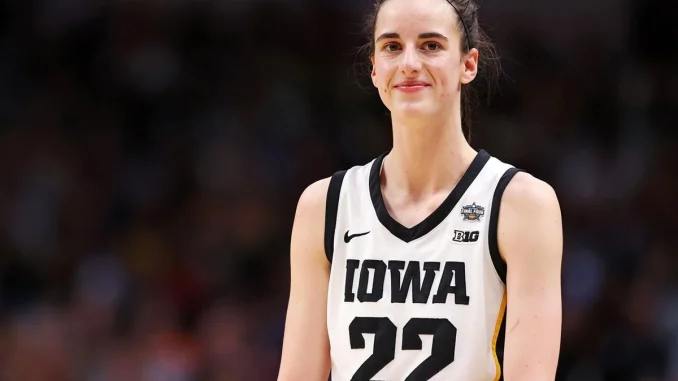
Limitless Expansion, Limitless Glamour: The Reasons Caitlin Clark Is Unique
In Iowa, her intense rivalry, daring passes, and 3-point shooting have made her a must-watch basketball player. When she departs, what happens?
People tend to follow Caitlin Clark when she moves—weaving through defensive traffic, gently signalling for a teammate to pass, or squirming free enough to catch, fire, catch fire.
To the extent that anyone can confidently prepare one, this instinct drives every opponent’s scouting report: it is a triple-underlined directive to shadow the biggest player in college basketball, Shaun Clark, lest she attempt another 3-pointer from the Hawkeye beak in the University of Iowa logo close to midcourt.
At perpetual sellouts, at home and on the road, crowds approaching 15,000 crane their phones in her general direction from pregame stretches through postgame autograph sessions. Young girls and old men tug at “22” Clark jerseys that flap above their knees. Small delegations from her Manhattan marketing firm file in to appraise their new asset. Stewards of the sport, wary from experience, permit themselves to wonder if something might be different this time.
C. Vivian Stringer, the Hall of Fame head coach of Iowa and Rutgers who retired in 2022, stated, “I have avoided basketball.” But how are you going to avoid Caitlin Clark?
The answer to this question will have a significant impact on Clark’s sport, her state, and the protracted and occasionally halting progress of women’s sports in America. It will also have social and economical ramifications.
Clark’s rolling spectacle from last spring appeared to indicate a
breakthrough. A record 10 million people watched the national championship game, which saw Iowa lose to LSU. It was a record-breaking turnout for a women’s final. This month, Clark has the potential to surpass all previous Division I college women’s scorers in scoring, a quest that will be covered in detail on ESPN every night with an intensity that was previously only saved for touchdown passes and ridiculous home run numbers. She is also challenging Pete Maravich, the legendary showman to whom she is sometimes likened, who set the Division I scoring record more than 50 years ago.
Prior to the title game of the previous year, Clark remarked, “I saw somebody called me, like, Ponytail Pete.” She did not object to the praise.
Whenever this season ends, Clark — who grew up in West Des Moines, two hours from campus — will face a fateful decision: return to Iowa or go pro, where attention and TV viewership lag behind the college game?

Leave a Reply